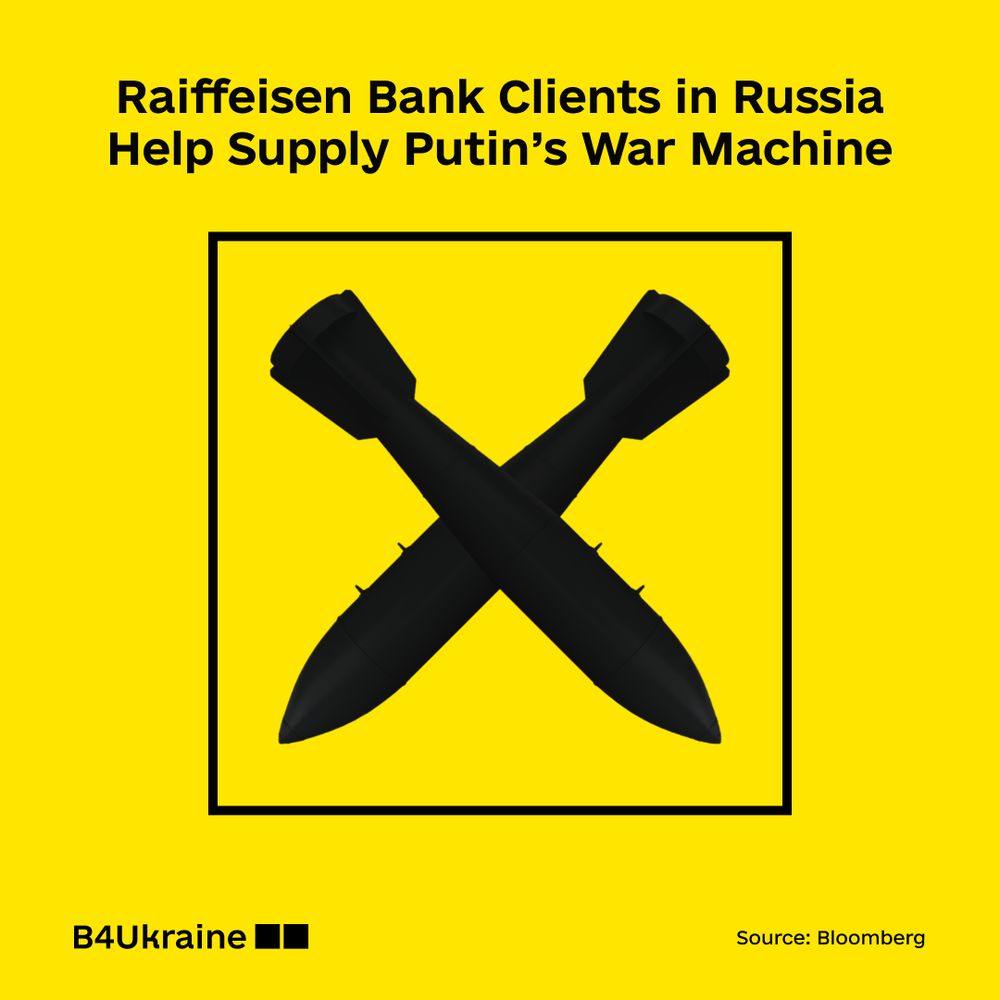
Raiffeisen isn’t “stuck” in Russia — it’s choosing to stay. Outrageously, the bank demands “compensation” to exit, all while serving firms that supply the Russian Armed Forces, as Bloomberg reports.
Bloomberg’s investigation shows that Raiffeisen’s Russian subsidiary earned more than $600,000 last year from providing payment and foreign exchange services to companies producing materials for Russian arms manufacturers. One such company, Russian chemical manufacturer Unichim, received payments into a Raiffeisen account after supplying acids for use in missile systems to a sanctioned company with close ties to the Russian navy.
Raiffeisen Bank International has repeatedly stated that it seeks to exit Russia and that its Russian unit has “implemented monitoring and screening tools to comply with… all applicable sanctions”. Bloomberg’s findings, however, underscore that the operational risks for companies still doing business in Russia have become nearly impossible to avoid. After reporting a drop in its annual profits for the first time in nine years following a US$ 2bn asset grab by a Russian court, RBI may now also find itself facing compliance-related risks over its client relationships in Russia.
These findings follow a series of warnings to Raiffeisen about Russia’s growing militarisation of its industrial economy, which has increasingly roped both civilian and military companies into the production of “ omni-use technologies” for the war on Ukraine. In early 2024, former U.S. Treasury Secretary Janet Yellen cautioned that Raiffeisen’s continued operations in Russia posed an “awful lot of risk”, as the country’s “war economy” ensured that civilian and military sectors became harder to distinguish.
30 civil society organizations from Ukraine and abroad had previously raised a similar warning in an open letter to RBI’s CEO Johann Strobl in May 2023, cautioning that “Russia has made it next to impossible for foreign businesses to operate in the country without becoming directly complicit in Russia’s war efforts”. The open letter did not receive a response.
Max Hammer, Human Rights Campaigner at BankTrack, said: “For three years, Raiffeisen has delayed its exit from Russia while claiming that it adheres to rigorous due diligence procedures in the country. Clearly, these due diligence procedures have not been enough to prevent the bank from helping companies supply Putin’s military. Bloomberg’s findings should be a clear warning: any company still doing business in Russia is doing business with the Russian military-industrial complex.”
Nezir Sinani, Executive Director at B4Ukraine, said: “EU and US authorities have repeatedly warned Raiffeisen that its business in Russia poses significant operational and compliance-related risks. Rather than minimise these risks by getting out of Russia, Raiffeisen has ignored these warnings and let itself get embroiled further and further into the country’s war economy. Now that the consequences are laid bare, will the bank finally face consequences for its contributions to Putin’s war machine?”